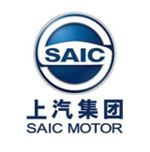The transformation and change of the vehicle industry from a more or less self contained island of vehicle producers, their brands and their upstream supply chain into one of the partners in a digitally dominated, connected mobility ecosystem is in full swing. China is leading this transformation at present.
The three major change waves are:
-
Change to electric powertrain: This transformation is already complete, it is history.
-
Change to comfortable use of electric cars: This transformation focuses mostly on ultra-short charging times, has already peaked, and is the guarantor of a complete shift to eco friendly and fun to drive vehicles.
-
Change to a totally connected mobility ecosystem: With software defined vehicles (SDV), a digital infrastructure, open source software abundance, millions of new players, a totally new supplier landscape. this is not just a wave, it is a tsunami.
With the rapid development of new energy vehicles and intelligent driving, software is used not only to control vehicle functions and to define its features but is omnipresent in areas interchanging data from the infrastructure with the vehicle.
At the same time, software is penetrating every part of automotive supply chain both from its quantity and from its criticality. Moreover, as the main value-added services enabler and user experience differentiator, software is shifting the distribution of automotive value streams to the mobility operations at the consumer end. Undoubtedly, software is totally reshaping the automotive ecosystem.
While software is making profound impacts and bringing a large number of new players into the scene with no previous experience in automotive, the management of software quality poses huge challenges to the automotive industry and also now the organizations engaged in the infrastructure.
As software quality is associated with the safety, security, performance, and user experience of a vehicle, it is bringing an entirely new context and meaning of quality to the old automotive industry, and now the new mobility ecosystem. The scope and complexity of software quality go far beyond the traditional quality management.
Thus, it is imperative that new quality management systems for organizations, specifically for software, shall be established within OEMs and their relevant supply chains, covering the whole ecosystem.
The new energy and intelligent vehicles have developed rapidly in China in recent years. Since 2021, the Automotive Working Committee of China Association of Consumer Products Quality and Safety Promotion (CACPQSP, a non-profit organization), has coordinated collaborative efforts by experts from major OEMs, top automotive technology and engineering research institutes, as well as certification, testing and consulting organizations, to draft a new quality management system standard to help the automotive industry and their new ecosystem tackle any current or future software quality challenges.
The standard, named ASQMS (Automotive Software Quality Management System), was first officially released by CACPQSP on December 1, 2023 in Chinese and implemented on January 1, 2024 in China. Meanwhile, the ASQMS oversight functions worldwide were established in December 2023. The ASQMS China Oversight lies in the Automotive Working Committee of CACPQSP, while the first non-China Oversight is in Germany, undertaken by ASQMS Deutschland GmbH, a non-profit organization. ASQMS Deutschland GmbH released the first English and German versions of ASQMS standard in January 2024, implemented at the same time.
The ASQMS standard addresses the issues of automotive software quality with widespread concern. The key characteristics are the following:
a) ASQMS is an organization-level system certification standard for software organizations in the automotive industry and its ecosystem. It defines the entry requirements for an organization that can supply software to the mobility industry, ensuring that both the OEM's internal software department (captive supplychain) and its external software suppliers (upstream supplychain) and the firms in the infrastructure area (downstream supplychain) have basic quality principle, objectives, and disciplined processes;
b) The scope of the ASQMS standard covers wide ranges of software within the automotive ecosystem. Not only in-vehicle software, but also off-vehicle software supporting mobility operations, such as those deployed via cloud, at the client-side, at the roadside, at the field, etc., as well as software development and maintenance tools, are included in the standard. This broad scope reflects the need for comprehenseive network protection due to the connectivity and interactivity nature of intelligent vehicles;
c) The ASQMS standard covers the full life cycle of software products, from requirements, to design, development, integration, test, release, deployment, operation and maintenance, upgrade, and to the end-of-life, etc. This coverage is consistent with software’s need for continuous upgrade iterations after release, as well as the fact that many software needs to be maintained or even delivered as a service;
d) The ASQMS standard categorizes automotive software into Type I and Type II. The Type I software has neither functional safety nor cybersecurity risk, while all of other software is categorized as Type II. This categorization helps differentiate the process requirements for different software, leading to better efficiency and economics in implementing the standard.
There is an ASQMS Standard Promotion Working Group consisting of many major OEMs and other relevant organizations from around the world. The Promotion Working Group provides alignment and supervision in advancing the ASQMS standard implementation. The current ASQMS Standard Promotion Working Group members are the following:




































